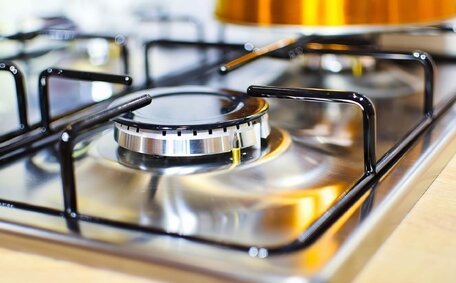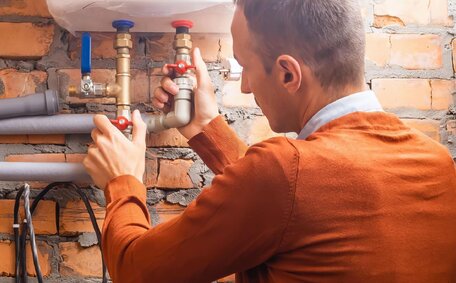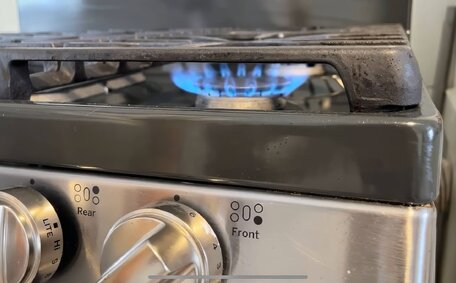What is Pipe Relining and How It Works
Pipe relining, a trenchless technique, fixes damaged pipes without the need for excavation. It involves inserting an epoxy lining, a resin-impregnated liner, into the host pipe, which then hardens to form a smooth, watertight seal.
The pipe relining process for hotels typically begins with a camera inspection to assess the pipe condition and locate any defects or blockages. High-pressure water jetting then cleans out blocked drains and the pipe interior in preparation for relining.
In the relining process, a corrosion-resistant epoxy liner is inserted through existing access points like drain lines, supplanting the old piping. The liner expands to fill cracks and holes, bonding with the existing structures to establish a seamless, jointless new pipe within the older one.
As As the resin hardens, it effectively seals leaks and fortifies the pipe, offering an upgraded alternative to conventional pipe replacement. Relined pipes exceed the quality of new ones, negating the need for disruptive floor excavation or infrastructure damage.
Pipe relining minimises service outages for hotel rooms and amenities. This pipe coating technology significantly reduces the risk of future root intrusion and corrosion. With proper maintenance, relined sewer pipes can last 50 years more, enhancing their longevity significantly.
Key Benefits of Pipe Relining for Hotels
Pipe relining offers multiple benefits to hotels prioritising guest comfort and minimal structural impact:
- Enhances structural integrity and eliminates future traditional pipe collapses
- Restores maximum flow and pressure to drinking water lines across various types of pipe infrastructure
- Seals leaks in piping systems to prevent water damage and moisture buildup
- Offers resistance to root intrusion and corrosion, with longevity extending beyond 50 years
- Preserves building aesthetics by avoiding destructive pipe replacements
- Reduces shutdowns of amenities or rooms during pipe systems repairs
- Lowers long-term plumbing costs compared to full pipe replacement
Pipe relining enables hotels to upgrade pipelines without disturbance to floors, walls, landscaping, or other infrastructure. The strong, jointless epoxy pipe lining also restores hydraulic function and is even more durable than traditional piping.
By being proactive, we could integrate pipe relining that offers minimal disruption yet adds decades of reliable service to a hotel’s plumbing systems and overall building integrity. With minimal downtime and enhanced longevity, it’s an optimal maintenance solution for your piping needs in hospitality venues focused on continuous guest satisfaction.
Minimizing Disruption to Hotel Operations
Pipe relining allows hotels to upgrade pipework with minimal impact on daily operations. As an entirely trenchless procedure completed through existing access points, relining avoids excavations that would disturb building foundations, room facilities, landscaping and infrastructure.
It typically takes between 1-3 days to complete the internal pipe relining process for an average-sized hotel. Rooms and amenities can remain online, as the pipe relining does its work efficiently, without noise or debris from breaking up concrete to replace old pipes.
The resin curing stage quietly completes overnight or within several hours before diameter pipes of any size, are put back into service. Experienced plumbing contractors use specialised equipment to speed relining jobs to under 48 hours in most hotel applications.
Well-organised schedules mean only one section of piping is relined at a time, streamlining the sewer repair process. This prevents full water systems being taken offline so water and drainage services continue functioning for hotel patrons.
Our strategic relining coordination means infrastructure enhancements are imperceptible to guests.
Longevity and Durability of Relined Pipes
Pipe relining transforms ageing pipework into renewed, long-lasting plumbing with exceptional durability. The seamless epoxy pipe lining bonds securely within hvac systems and pipes to prevent leaks for decades.
Known as Cured-in-Place Pipe (CIPP), quality sewer pipe relining employs corrosion- and abrasion-resistant materials that outperform traditional piping systems. UV-cured resins grant a robust internal pipe coating superior resilience compared to old sewer materials, deterring cracking and deterioration over time.
Expert firms provide lengthy guarantees on system relining due to the superior strength and durability of advanced lining materials. This benefit eliminates the frequency of pipe repairs or replacements for hotels in the coming years.
Durability is further enhanced by the absence of joints in relined pipes. Joints are typically the weak points that fail first in traditional piping networks. The seamless flow within new pipe lining avoids this vulnerability.
Relined pipes provide optimal water supply flow rates over decades of use without scaling or eroding internally. The smooth epoxy surface also repels buildup of other contaminants, effectively maintaining optimal capacity. With quality workmanship, hotels can rely on relined pipes to continue performing like new even after half a century.
Balancing Cost and Quality Considerations
Although more costly upfront than simpler repairs, pipe relining is more cost-effective in the long run than complete pipe replacement. The upfront expense is offset by the 50+ year lifespan of a relined plumbing system and the avoidance of recurring pipe issues.
Expert pipe relining uses top-grade epoxy resin and precision installation to deliver maximum durability. Although this high-calibre workmanship has its price, it is essential to prevent premature liner failures or leaks that could necessitate future repairs.
Hotels should view pipe relining solutions as a long-term asset that enhances guest experience through waterproof, high-capacity delivery of amenities and services. When weighing expenses against service longevity and reliability, pipe relining emerges as a prudent investment in the propertys future.
While DIY repairs or basic pipe linings may seem more affordable, they often fall short in satisfying the demands of commercial industrial operations. Specialised firms are adept at navigating the nuances of pressure ratings, access needs and system integration crucial for hospitality settings.
By leveraging expertise tailored to hotel infrastructure, management can safeguard pipework for decades without major dig-ups. This approach, which can make disruptions and water damage far less likely, saving substantial time, revenue and reputation for the business.
Evaluating If Pipe Relining Is Right for Your Hotel
When weighing the pros and cons of pipe relining, hotel owners must consider factors such as pipe age, leak history, renovation plans and the need for uninterrupted amenity access before committing.
Pipe materials must also be assessed, though damaged sewer components made of concrete, PVC, clay cast iron, steel, and some other materials, may still require replacement despite the possibility of relining.
Relining can reestablish stability and performance for pipes that are over 50 years old and suffer from leaks or clogs. It averts more disruptive replacements provided the walls aren’t extensively corroded or breached.
Hotels on long refresh cycles can benefit from pipe relining if it coincides with upgrades like lobby refurbs or room makeovers. Aligning schedules with qualified professionals prevents future interference when integrating the works.
Ongoing amenity access is also crucial for hospitality venues. Experienced plumbing firms complete relining with minimal downtime, using pipe bypassing and sequenced section repairs to maintain essential supply.
While upfront costs are higher than patching leaks, Pipe relining delivers long-term solutions, obviating the need for repeated fixes. With its 50 years of durability and resilience, pipe relining is a wise financial approach.
For hotel owners struggling with pipework beyond makeshift pipe repair, specialist-led relining is a lasting solution. It restores system integrity, often outperforming new piping over the long run.
When Pipe Relining May Not Work
While an effective solution in many cases, pipe relining has limitations and may not be suitable if:
- Your pipes consist of materials unsuitable for relining, such as Orangeburg fibre or asbestos cement
- Severely corroded pipes have suffered extensive structural damage
- Pipe diameter restrictions prevent liner insertion for very narrow or awkward pipes
- High root intrusion or partial collapses have occurred along the pipe
Comprehensive camera inspections by certified plumbers establish the suitability of pipes for relining. Completely collapsed or heavily scaled drain pipes with over 75% wall loss would still require replacement.
Pipe relining also relies on pipes being fully accessible for cleaning and lining insertion. Unknown pipe routes or irretrievable blockages may preclude relining options.
While not always an option for deteriorated piping, relining remains the top trenchless repair strategy in most situations. Engaging professional plumbers for assessments ensures hoteliers understand limitations before commencing work.
Questions for Your Pipe Relining Contractor
Before engaging a pipe relining contractor, hotel owners should ask questions like:
- How long have you specialised in commercial pipe relining?
- What types of materials do you use for hotel pipe linings?
- What thickness and pressure ratings do your pipe liners have?
- Do you provide multi-decade warranties on pipe relining?
- Will you isolate and bypass sections to maintain amenity supply?
- Can you complete relining overnight to limit downtime?
- Do your teams coordinate with other hotel upgrade crews?
- Will you survey pipes first to identify any replacement needs?
- Can you share previous hotel client references or testimonials?
Trustworthy companies will willingly disclose their experience, practices, and verifiable hotel success stories. Owners should verify the suitability of materials and techniques as well as timeframes before confirming works. This ensures hotel pipe relining projects proceed smoothly from start to completion.
Case Studies of Pipe Relining in Hotels
A 5-star hotel chain in Sydney encountered persistent leaks and clogs in its 50-year-old concrete drainage pipes. Unable to isolate the issues through temporary fixes, they risked harmful sewage backups.
Following CCTV drain inspections by Professional Plumbing, significant cracks, holes, and root invasions were revealed in the pipe system. Rather than jackhammering floors to replace pipes, relining was recommended.
The project team coordinated the lining process works overnight and on weekends to avoid guest disturbances. They isolated segments of the pipe network to ensure no more than one-third of the plumbing was out of service simultaneously. This maintained essential supply during the 1-2 day relining process per section.
In the end, over 250 metres of deteriorated piping was restored to like-new condition without a single guest complaint. The hotel secured its plumbing infrastructure for decades to come, with a 50-year warranty safeguarding their investment.
A 4-star resort had deferred repairing leaks in its 1980s galvanised piping to avoid disruption. However, a burst pipe in the lobby led to a flood and a closure for extensive repairs.
To prevent repeat incidents, the resort hired trenchless relining specialists to reinforce pipework. The team worked around the clock to complete the project in under 5 days with no excavation required.
The swift and dependable relining service prolonged the life of the pipes at significantly reduced costs compared to full replacement. It also ensured no future leaks or collapse risks, enabling the resort to deliver consistent service without shutdowns for plumbing emergencies.






